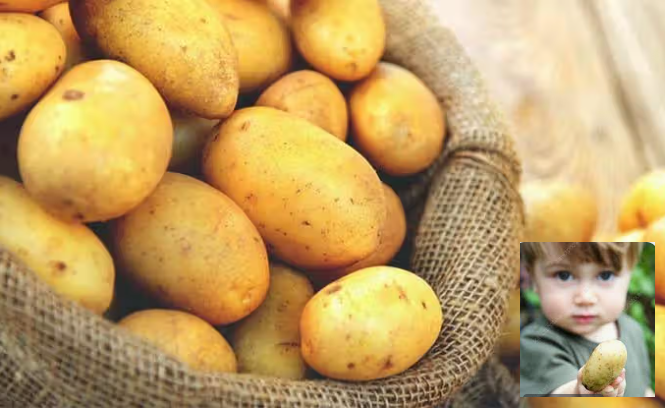Potato Allergies and Intolerances: From Babies to Bloating

Potatoes are a staple in many diets around the world. They’re versatile, delicious, and generally well-tolerated by most people. However, for a small percentage of the population, consuming potatoes can lead to allergic reactions or intolerances. In this article, we’ll delve into the various aspects of potato allergies and intolerances, from symptoms in babies to the link between potatoes and bloating.
Also Read:- Exploring Potato Allergy Alternatives and Understanding Acne Links
1. Potato Allergy in Babies
Babies have delicate digestive systems, and introducing new foods can sometimes lead to allergic reactions. Potato allergy, although rare, can manifest in babies. Here’s what you need to know:
- Symptoms: Common symptoms of potato allergy in babies include hives, eczema, diarrhea, vomiting, and even anaphylaxis in severe cases.
- Diagnosis: If you suspect your baby has a potato allergy, it’s crucial to consult with a pediatrician. They may recommend an allergy test to confirm the diagnosis.
- Management: If your baby is diagnosed with a potato allergy, the best course of action is to avoid potatoes in their diet. Always read food labels and be cautious when dining out.
2. Potato Allergy and Bloating
For some individuals, consuming potatoes can lead to bloating. This can be due to an allergic reaction or an intolerance. Here’s the difference:
- Allergic Reaction: An allergic reaction to potatoes can cause inflammation in the digestive tract, leading to bloating. Other symptoms might include itching, hives, and difficulty breathing.
- Intolerance: Potato intolerance is different from an allergy. It means the body has difficulty digesting potatoes, leading to gas, bloating, and stomach pain. Unlike an allergy, an intolerance doesn’t involve the immune system.
3. Potato Bread Allergy
Potato bread is a popular alternative to regular bread, especially for those who are sensitive to gluten. However, if you’re allergic to potatoes, consuming potato bread can lead to an allergic reaction. Symptoms can range from mild, like itching and hives, to severe, such as anaphylaxis. If you suspect you have a potato bread allergy:
- Check Ingredients: Always read the ingredients list on bread labels. Some bread might contain potato flour or potato starch.
- Consult with an Allergist: If you experience symptoms after consuming potato bread, it’s essential to see an allergist. They can conduct tests to determine if you’re allergic to potatoes or any other ingredient in the bread.
4. Potato Intolerance and Bloating
As mentioned earlier, potato intolerance can lead to bloating. But how can you differentiate between an intolerance and an allergy?
- Symptoms: While both can cause bloating, an intolerance might also lead to other digestive issues like gas, diarrhea, and stomach pain. An allergy, on the other hand, can cause more systemic symptoms like itching, hives, and respiratory issues.
- Management: If you suspect you have a potato intolerance, it might be helpful to keep a food diary. Track what you eat and any symptoms you experience. This can help you and your healthcare provider identify patterns and potential triggers.
Conclusion
Potatoes are a nutritious and delicious food, but for some individuals, they can cause allergic reactions or intolerances. Whether you’re a concerned parent of a baby showing symptoms after consuming potatoes or an adult experiencing bloating after a potato-rich meal, it’s essential to be informed. Recognizing the signs and seeking medical advice can ensure yo








